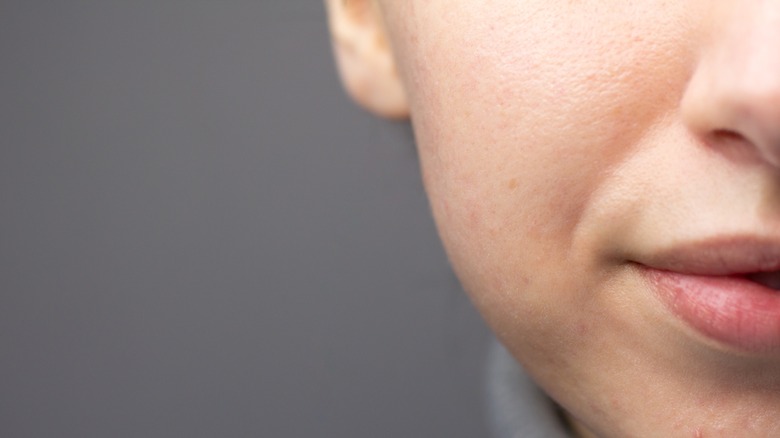How To Protect And Care For Your Skin Barrier
Your skin barrier is the outermost layer of your skin, which helps protect your face and body. Also known as the stratum corneum, or the top layer of the epidermis, the skin barrier acts as a protective shield against external elements while keeping moisture in.
According to experts at Cosmopolitan, the skin barrier is made up of a system of cells and lipids, which help keep your skin looking healthy. However, this barrier is very fragile and can easily be disrupted by a whole host of factors, including environmental elements, physical damage, medical conditions, genetics, and even age.
"When your skin barrier doesn't have an effective balance of fats, the moisture and hydration that makes your skin look supple, full, and plump will not be maintained," board-certified dermatologist Dr. Dana Stern told Cosmopolitan. This can cause your skin to become dry, flakey, irritated, itchy, or sensitive, and may result in flare-ups of common skin conditions. That's why it's important to take care of your skin and protect your skin barrier.
How to keep your skin barrier healthy
Fortunately, you can help protect and restore your skin barrier by maintaining your skin's pH balance and simplifying your skin care routine. According to Healthline, using too many skin care products can actually be bad for your skin. That's why it's best to not overcomplicate it.
Stick to dermatologist-recommended products and be careful with exfoliants, especially if you have sensitive skin or a darker skin tone. Depending on the type, some scrubs can irritate your skin and temporarily damage your skin barrier.
You should also try to use products that won't disrupt your skin's pH balance. Your skin has a pH balance of around 4.7, but some products can range in pH from 3.7 to 8.2. As a result, experts recommend looking for skin care products with a pH balance between 4.0 and 5.0. In addition, it can be helpful to use moisturizing and nourishing skin products, like plant oil, ceramides, hyaluronic acid, and glycerin.


